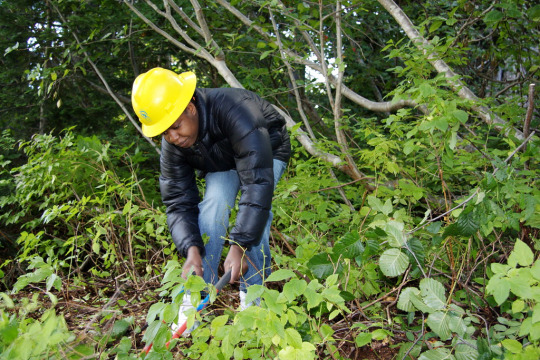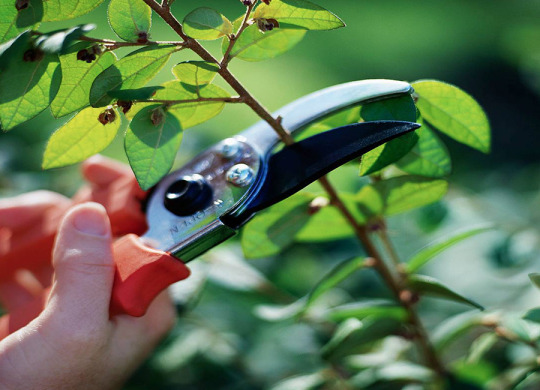#anyway it really seems like things are only directly connected to John when they're used as proof of what a terrible villain he is
Text
There's a fascinating double standard in a lot of the analysis of John's influence on the Nine Houses' society. Like, the role of cavaliers, the widespread commodification of the remains of the dead, these are all faults the Nine Houses have inherited directly from him. Fair enough. But the lack of gendered roles, the complete lack of male primogeniture, homophobia, or patriarchal family structures, these of course have nothing to do with John, who is definitely a misogynist.
edit: what I mean is that the stuff that makes it easy to hate John and frame him as a mustache twirling villain tends to be entirely credited to him, while complications to that narrative tend to fall by the wayside. this post has nothing to do with misandry and everything to do with craving nuance
#i have a lot of Thoughts on John's relationship to gender#and how deeply conflicted he is about it#none of which can be summarized by 'he's a misogynist'#anyway it really seems like things are only directly connected to John when they're used as proof of what a terrible villain he is#the lack of nuance....#not maintagging this one lads
407 notes
·
View notes
Text
“On Being Pruned” based on 1 John 4:7-21 and John 15:1-8
While I was in college I lead a group of new freshman on an outdoor adventure trip. We were assigned to trail maintenance in a very remote part of Northern New Hampshire. It was a beautiful place and a wonderful trip, but it turns out that a lot of trail maintance is actually killing small trees so that they don't grown on the trail and I really deeply hated that. No matter how many times I reminded myself that by maintaining the trail and giving people a chance to experience that pristine wilderness I was PROTECTING most of the trees, I still felt uncomfortable with each one I killed.

Similarly, I'm not particularly good at pruning. I'm so afraid of going too far that I don't go far enough. It would be enjoyable to claim that this is related to the value, “don't hurt living things unless you have to” but that fails to notice that things you prune are things that NEED pruning. Pruning is a source of abundant life.
According to Gospel commentaries, grapevines are things that need pruning. The Five Gospels says, “Vines do not have branches, contrary to popular usage, but 'canes.' Each year canes are snipped from the vines and piled in the vineyard to be burned. … The vines will not bear good fruit, or fruit in abundance, if they are not pruned annually.”1 The metaphor loving writer of the Gospel of John suggests this is true of the followers of the way of Jesus as well. We too need regular pruning to “bear fruit.”

I suspect many of us feel similarly about pruning ourselves as I do about pruning any other living thing. It is uncomfortable, it is done with caution, we don't want to go to far. And that means that often we don't prune quite far enough.
This may feel like an unfortunate time to come across this Gospel, because the impact of the pandemic has been a desire to return to “normal” and profound objections to the ways our lives have been “pruned” from the outside beyond our control. But here is the Gospel anyway, and when we're honest we note that even this awful pruning has had SOME silver linings.
Now, in John's metaphor, God is the gardener, and God is the one doing the pruning. We are fairly passive to the pruning. We are definitely NOT in charge of self-pruning. :) Phew. Likewise, we are not in charge of fruit production. Fruit comes from being connected to Jesus, and well pruned by God, and we are mostly PASSIVE fruit bearers. Fruit or lack there of isn't really our fault. We are tended, rooted, and pruned to be the best fruit bearers we can be, and we can simply BE and God's goodness will work through us.
Nice.
While I think that idea is incomplete, I also think it is one worthy of consideration.
Many of us TRY REALLY HARD ALL THE TIME, and this suggests that we can let go and God's goodness will keep flowing. That is an important truth, if incomplete.
So if God is the gardener and the pruner, then who are we when we resist pruning? I suspect that we are vine “canes” that are holding on for dear life to canes that have already been snipped and berating ourselves that we can't bring them back to life. There are these dead, decaying branches and we're holding them in place willing them to grow again, and in doing so, missing the new life springing up within us.
Several years ago I watched a TED talk by Dan Gilbert, a psychology professor at Harvard entitled “The Psychology of Your Future Self.” Gilbert's ideas have stayed with me ever since. He opens his talk by saying:
At every stage of our lives we make decisions that will profoundly influence the lives of the people we're going to become, and then when we become those people, we're not always thrilled with the decisions we made. So young people pay good money to get tattoos removed that teenagers paid good money to get. Middle-aged people rushed to divorce people who young adults rushed to marry. Older adults work hard to lose what middle-aged adults worked hard to gain. On and on and on. The question is, as a psychologist, that fascinates me is, why do we make decisions that our future selves so often regret?
I'm hoping you already see how this relates to letting God's pruning without fighting it! He states his thesis directly (don't you love that?), “What I want to convince you today is that all of us are walking around with an illusion, an illusion that history, our personal history, has just come to an end, that we have just recently become the people that we were always meant to be and will be for the rest of our lives. “ As you might hope, Gilbert proves this point along the way, and then goes on to conclude:
Most of us can remember who we were 10 years ago, but we find it hard to imagine who we're going to be, and then we mistakenly think that because it's hard to imagine, it's not likely to happen. ...when people say "I can't imagine that," they're usually talking about their own lack of imagination, and not about the unlikelihood of the event that they're describing.
The bottom line is, time is a powerful force. It transforms our preferences. It reshapes our values. It alters our personalities. We seem to appreciate this fact, but only in retrospect. Only when we look backwards do we realize how much change happens in a decade. It's as if, for most of us, the present is a magic time. It's a watershed on the timeline. It's the moment at which we finally become ourselves. Human beings are works in progress that mistakenly think they're finished. The person you are right now is as transient, as fleeting and as temporary as all the people you've ever been. The one constant in our life is change. 2
That is, pruning happens whether we want it to or not, and either we can make peace with it and let it be, or we can fight with it, but it won't change the fact that things change.
While I prefer it when I can read it with some verses missing, 1 John 4 is a very important chapter in the Bible for most people I know because it says the thing they believe most, “God is love.” It says it strongly too, “No one has ever seen God; if we love one another, God lives in us, and God's love is perfected in us. ...Those who say, "I love God," and hate their siblings, are liars; for those who do not love a sibling whom they have seen,
cannot love God whom they have not seen.” (11, 20). Perhaps this fits the idea that loving God and loving other people are two sides of the same coin, inseparable though they can appear to be different. These claims about God, that God is love, and that loving people is a way of loving God, are the lens through which I see the entirety of the Bible. I remain grateful that it is there, and available to be used.
John chapter 15 goes on to sound a whole lot like 1 John 4. The Vine and Branches metaphor morphs quickly to point out that the fruit that God is looking for is the practice of abiding in love. So both of them point the question: what impairs love and what encourages it? If we are being continually pruned by God, what helps us let go of what we're done with, and what helps us connect with what God is up to next? Or, in the metaphor, how do we let go of the pruned and dead branches so there is space for new growth?
Perhaps the best thing we can do for now is notice. We can notice what has been pruned, so we can let it go and we can notice what is growing so we can watch it growing. Perhaps this passage is exactly right for right now. We aren't the gardener, we aren't in charge, but we can – at least – stop impeding the Gardener's work and instead notice what it is.May it be so. Amen
1 Robert W. Funk, Roy W Hoover, and The Jesus Seminar, The Five Gospels: The Search for the Authentic Words of Jesus (HarperOneUSA, 1993), page 453.
2 Dan Gilbert, “The Psychology of Your Future Self” Ted Talk, found at https://www.ted.com/talks/dan_gilbert_the_psychology_of_your_future_self/transcript?utm_campaign=social&utm_content=talk&utm_medium=referral&utm_source=facebook.com&utm_term=soci al-science#t-308201 given on March 2014 accessed on April 29, 2021.
#Thinking Church#Progressive Christianity#FUMC Schenectady#Schenectay#UMC#Sorry about that homophobic UM#Rev Sara E Baron#Johannine community#God Is Love#Faith Statement#Easter Season#Pruning#Just be the branches#Notice
1 note
·
View note